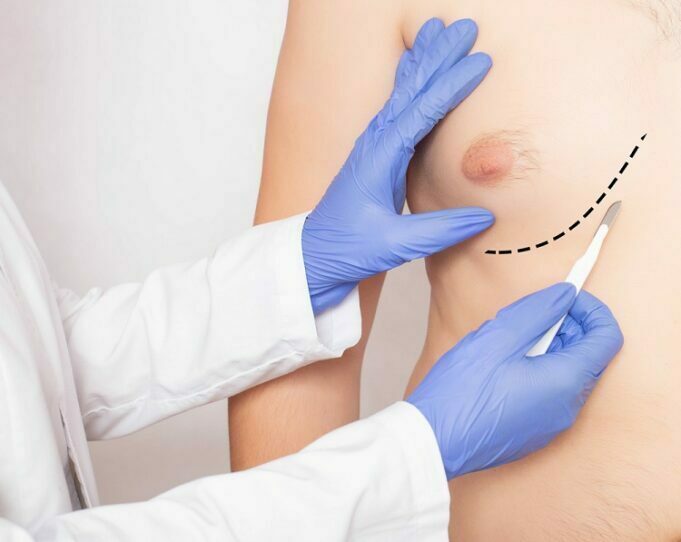Gynecomastia is a condition in men and boys where overdevelopment or enlargement of breast tissue occurs. The breasts become more prominent, and they may grow unevenly. Gynecomastia West Palm Beach can affect one or both breasts. Enlarged breasts in men can be stressful and embarrassing affecting self-confidence to engage in romantic relationships. The signs include having a small amount of extra tissue around the nipples or more prominent breasts, and in rare cases, the breast tissue becomes tender or painful.
Table of Contents
Causes
Hormone imbalance: The imbalance of sex hormones, testosterone, and estrogen can cause gynecomastia. Estrogen stimulates the growth of breast tissue. Production of higher levels of testosterone prevents estrogen from stimulating breast tissue growth. Increased production of estrogen will lead to gynecomastia. The cause of this hormonal imbalance in some cases is unknown.
Obesity: Overweight is a common cause of gynecomastia. Obesity leads to increased estrogen production, which causes breast tissue growth. When you are obese, you will most likely have fat accumulation, which can enlarge breast tissue.
Newborn baby boys: Estrogen passes from the mother to the placenta, causing gynecomastia. It disappears on its own a few weeks after birth.
Puberty: At puberty, the hormone levels can vary in different boys. Gynecomastia will develop when levels of testosterone decrease. The condition will clear up as boys grow older and the hormones stabilize.
Older age: As men grow older, testosterone production decreases, leading to the development of breast tissue. Gynecomastia is common in men over fifty years. Older adults also tend to have more fat which causes excess estrogen production resulting in gynecomastia.
Health conditions: Some health issues like adrenal tumors, kidney disease, Klinefelter syndrome, liver disease, and thyroid condition can cause gynecomastia.
Medications: Gynecomastia can result from taking medications that treat depression, bacterial and fungal infections, enlarged prostate, stomach ulcers, heart problems, and male infertility.
Drugs: Particular drugs like marijuana, opioids, anabolic steroids, lavender oils, and tea tree oils can also lead to breast swelling.
Diagnosis
Your doctor can do a physical examination and take your past health or medical history to determine whether the underlying issue causes your gynecomastia. The doctor can recommend other tests such as blood tests, urine tests, a mammogram on your breast, and a biopsy can help check cancer cells to rule out other diseases.
Treatment
Some people will seek treatment to avoid embarrassment, and others due to the painful nature of the tissue. In most puberty cases, the condition will disappear, although it may take an extended period, between six months to three years. Your doctor can recommend medications to adjust your hormonal imbalance. Surgery is preferred when other treatments are ineffective, a lump, or the breast tissues is causing distress or pain. If a specific type of medication is causing gynecomastia, your specialist may recommend you stop taking it and look for an alternative for your problem. If a disease is causing gynecomastia, your doctor will treat the issue.
Lifestyle changes like reducing weight, avoiding some illegal drugs, and not taking alcohol can prevent the development of gynecomastia. Schedule an appointment with Luis A. Vinas, MD, for gynecomastia to avoid the embarrassment of breast enlargement.










